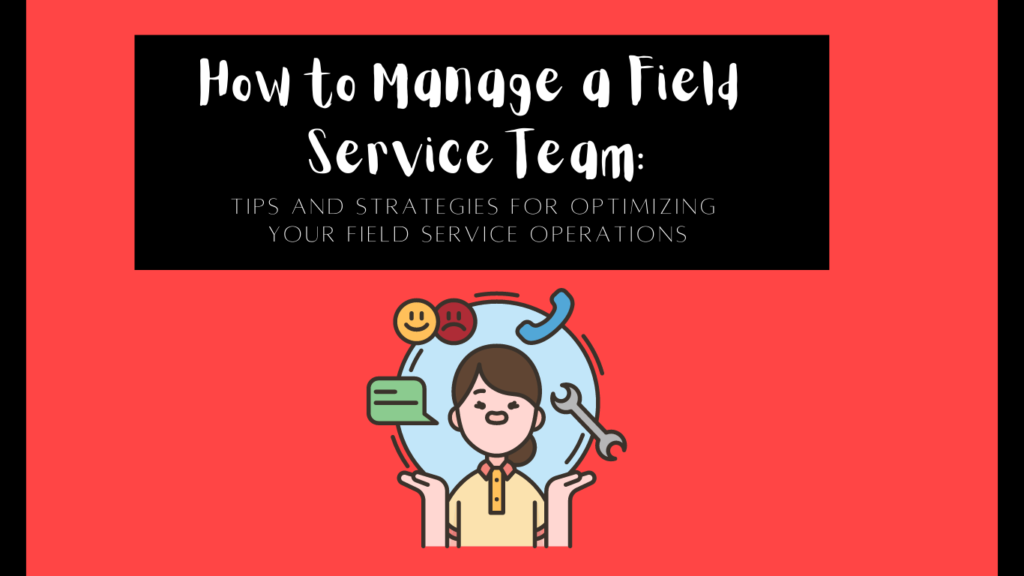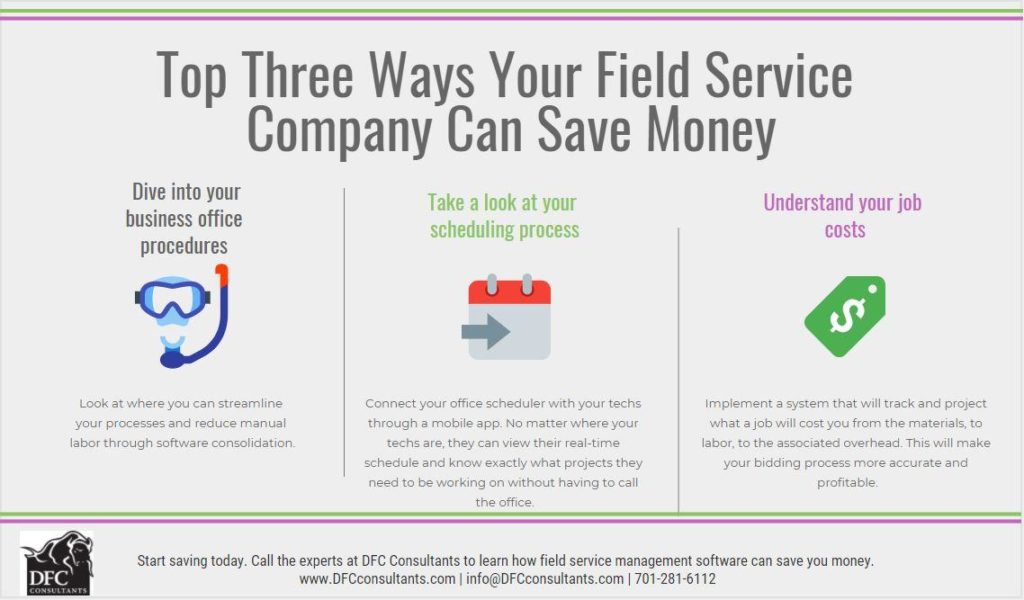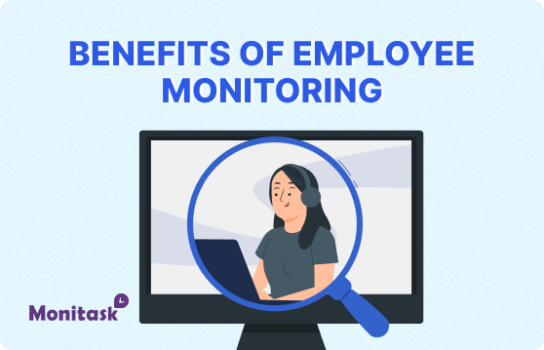How to Manage a Field Service Team: Tips and Strategies for Optimizing Your Field Service Operations

If you’re like most business owners, field service is a critical part of your operations. You rely on field service workers to provide quality service and support to your customers. But field service can be challenging. Yes, we know how difficult it can be to manage a field team and optimize field service operations.
In this blog post, we will discuss tips and strategies for managing your field service unit and optimizing your field service operations. So whether you’re just starting in field service or you want to improve your current operations, this blog post is for you!

Field Service Team Management: A Short Tale
The field service industry has been around for centuries. In fact, field service was one of the first industries to be affected by the industrial revolution as field service workers were some of the first employees to be displaced by machines.
Something along the lines of Terminator 3: The Rise of the Machines but in a much less evil way!
As technology has advanced, field service has evolved and changed. Today, field service management is a critical part of many business operations, providing quality service and support to improve customer satisfaction.
What is Field Service Management?
Field Service Management (FSM) is the process of managing field service processes off company property. This includes tasks such as scheduling field service appointments, inventory management, dispatching field service professionals, service delivery, and managing customer interactions.

As more manufacturing companies are using field service management systems to make their operations more robust, efficient, and error-free the increasing adoption of these solutions by small and medium-sized organizations is expected to significantly support market growth.
According to the Verified Market Research, from 2022 to 2030, the field service management market is expected to increase at a CAGR of 14.57 percent, from USD 2.75 billion in 2021 to USD 7.59 billion in 2030!

The Different Types of Field Service Management
Of course, such an important market offers an array of options to choose from to fit your industry. There are four primary types of field service management:
Appointment scheduling: One of the most important aspects of field service management is appointment scheduling. This includes creating and managing field service appointments.
- Inventory management: Field service professionals must have the right tools and equipment to do their job. This is where inventory management comes in. Field service managers are responsible for ensuring that field service technicians have the necessary tools and equipment to complete their work.
- Dispatching: Another key aspect of field service management is dispatching field service professionals. This includes assigning field service schedules. This includes creating a schedule that meets the needs of the customer and ensures that field service technicians are available when they are needed.
- Service delivery: Once field service professionals are dispatched to a customer’s location, they must then deliver the services that the customer needs. This includes tasks such as troubleshooting, repairs, and installations.
Which one do you need?
The Benefits of Field Service Management
Field service management is a critical part of many businesses, yet it can be challenging to manage. field service workers are often spread out across different geographical areas, making it difficult to manage and optimize field service processes.

FSM can help businesses overcome these challenges by providing a centralized system for managing field service processes. FSM can help businesses improve communication, coordination, and efficiency while reducing costs.
Field service management can offer many benefits to businesses, including:
- Improved communication and coordination: Efficient communication and coordination can lead to field service issues such as missed appointments, late arrivals, and long wait times.
- Reduced costs: Efficient field service processes can be costly. FSM can help businesses reduce costs by providing a centralized system for managing field service processes. This can help businesses improve communication, coordination, and efficiency while reducing field service costs.

- Improved customer satisfaction: Field service is a critical part of many businesses, yet it can be challenging to provide quality field service. FSM can help businesses improve customer happiness by providing a centralized system for managing field service processes.
- Increased efficiency: Implementing a field service management system can help businesses improve communication, coordination, and efficiency while reducing field service costs.
- Improved customer happiness: When customers are happy, they are more likely to use your service again and recommend it to others. Improved customer happiness can be achieved through better communication, more efficient scheduling, and faster problem resolution.
The evolution of this industry has led to the development of multiple useful tools, such as field service management software!
What Is Field Management Software?
When purchasing field service management software you help your business manage field service teams more efficiently by providing a centralized system for managing field service processes.
Field management software is a tool that helps field service businesses manage their field operations. It enables businesses to track and schedule field service appointments, dispatch field technicians, and invoice customers.
The field management software market has seen steady growth over the years, especially after the COVID-19 pandemic. The field service management software industry is expected to rise at a 15.4% CAGR to $7.10 billion by 2026. This technology is not going anywhere, and au contraire is here to stay!

Field service management software can also help businesses manage inventory, customer data, and financial data. Field management software typically includes a customer relationship management (CRM) module, a field service scheduling module, and a field technician dispatch module.
Businesses use field service management software to improve field service efficiency and customer satisfaction
There are many benefits of using field management software. Field management software can help businesses save time and money by automating repetitive tasks such as appointment scheduling and invoicing.
In addition, field management software can help businesses improve customer satisfaction by:
- Providing visibility into the status of field service appointments and enabling businesses to quickly resolve customer issues.
- Helping businesses improve their bottom line by increasing revenue and reducing costs associated with field service operations.

How to Manage a Field Service Team: Tips and Strategies for Optimizing Your Field Service Operations
To fulfill your customer expectations and keep up with the competition, you need to optimize your field service processes. Fortunately, we live in a day and age where there are many field service management solutions that can help you do just that!
Let’s take a look at the best tips and strategies!
Track the right KPIs
Field service is a data-driven industry. To manage and optimize field service processes, it is important to track the right KPIs. Common field service KPIs include first-time fix rate, customer happiness score, and field service utilization.
- Time fix rate (FTFR) is a field service metric that measures the percentage of times a skilled technician can fix a problem on the first visit.
- Customer satisfaction score (CSAT) is a field service metric that measures customer happiness with the field service experience.
- Field service utilization (FSU) is a field service metric that measures the percentage of time field professionals are productive.
Leverage the Power of Data
Data is a powerful tool that can help businesses improve field service quality and reduce field service costs.
By collecting data on field service processes, businesses can identify areas of improvement and make changes to improve field service quality.
Some common data that field service businesses collect include:
- Service call data
- Field technician performance data
- Maintenance data
By analyzing this data, the field service industry can improve quality by making changes to field service processes.
These changes can include:
- Implementing field service best practices
- Scheduling field professionals more efficiently
- Improving field technician training
By making these changes, businesses can improve field service quality and reduce field service costs.
Focus on Better Response Time
In our fast-paced world, customers expect field service companies to provide fast and efficient service. In fact, according to research by HubSpot in 2018, a majority of customers regarded a rapid response from businesses as “important” or “extremely important” at every step of their customer lifecycle.
82% when they had marketing or sales-related inquiries, and 90% when they had a customer support issue.

In order to improve response time, field service businesses need to focus on three things:
- Improving communication between the job site and the office
- Optimizing job scheduling
- Reducing field technician travel time
Use Field Service Management Software
Another important tip is to use field service software. FSM software can help businesses automate and optimize their field service processes.
There are many different types of field service management systems, but they all share one common goal: to provide businesses with a better field service management solution for better service and operations management.
Increase Communication and Collaboration
An efficient field service management requires good communication and collaboration between the field and office staff. In order to improve communication, field service businesses should consider using field service management software.
FSM software can help businesses automate communication and coordination between the field and office.
Conduct Field Service Training
Field service management is a complex and challenging job, but it can be made easier with the right training.
By conducting field service training, businesses can ensure that their field professionals are equipped with the knowledge and skills they need to provide an excellent customer experience.
The right field service training will cover topics such as:
- How to use field service software
- How to troubleshoot common field service issues
- How to manage customer expectations
By providing field technicians with the right training, businesses can enhance communication, coordination, and efficiency while reducing costs.
Invest in Field Service Training
As the field service increasingly becomes a data-driven industry, it is important for businesses to invest in field service training that will help field technicians upskill and become more proficient in using field service software.
There are many field service management programs that offer certification and field technician training. By investing in these programs, businesses upskill field technicians
Use the Power of Technology
Technology can be a powerful tool for the field service management solution industry.
By leveraging the power of technology, businesses can enhance communication, reduce field technician travel time, and optimize job scheduling.
Some common field service technologies include:
- Field Service Mobile Apps: Field service mobile apps can help businesses automate these tasks and reduce the time field technicians spend on administrative work.
- Field Service Management System: FSM software can help businesses automate communication, coordination, and scheduling between the field and office.
- Scheduling Software: This software can help businesses optimize field technician schedules by considering things like travel time, job duration, and customer availability.
- GPS Tracking: GPS tracking can be used to track field technician location and progress in real-time. This information can be used to improve coordination between the field and office staff.
- Satellite Tracking: Satellite tracking is a technology that can be used to track field technician location and progress in real-time.
Schedule Preventive Maintenance
Ideally, scheduled preventive maintenance should be performed before a problem occurs. This type of maintenance is performed on a scheduled basis – typically monthly, quarterly, or yearly. Its purpose is to minimize the likelihood of equipment failure or unexpected downtime.

Preventive maintenance is an important part of any effective field service management solution. By performing regular maintenance on equipment, you can avoid costly repairs or replacements. In addition, it can help to extend the lifespan of your equipment.
Optimize Workflow
Optimize Workflow in field service management is an important task that needs to be carried out in order to improve the productivity of the field technicians. By optimizing the workflow, the number of tasks that need to be completed by the field technician can be reduced, thus saving time and effort.
Optimize your workflow helps to improve the accuracy of the work done by the field technician
By following the above tips, you can optimize and automate the task of scheduling and dispatch. Optimizing workflow in field service management is a continuous process and needs to be carried out on a regular basis in order to maintain high levels of productivity.
Wrapping Up
A field service crew can be a complex and challenging job, but it can be made easier with the right training on a regular basis. Remember that technology can play a big role in field service management by automating tasks and reducing the time field technicians spend on administrative work.
Did you find this article helpful? If so, please share it with your network!


